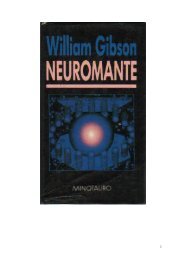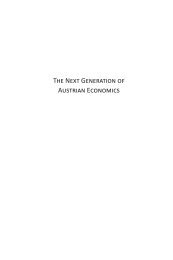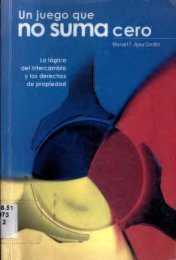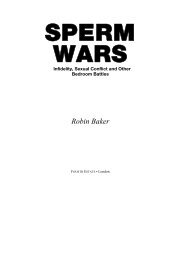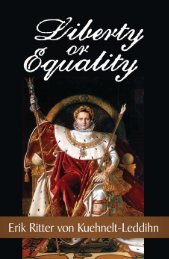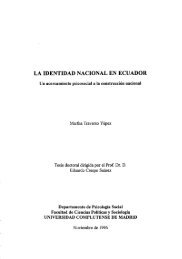capitalist_and_entrepreneur_klein
capitalist_and_entrepreneur_klein
capitalist_and_entrepreneur_klein
Create successful ePaper yourself
Turn your PDF publications into a flip-book with our unique Google optimized e-Paper software.
xi<br />
A final chapter, “Commentary,” collects some shorter essays on the<br />
nature <strong>and</strong> history of the Internet, the role of the intellectuals in society,<br />
the relationship between management theory <strong>and</strong> the business cycle,<br />
biographical sketches of Carl Menger <strong>and</strong> F. A. Hayek, <strong>and</strong> a note on<br />
Williamson’s contributions <strong>and</strong> his relationship to the Austrian tradition.<br />
Some of these first appeared as Daily Articles at Mises.org <strong>and</strong> were written<br />
for a nonspecialist audience. Indeed, I think scholars in every field,<br />
particularly in economics <strong>and</strong> business administration, have an obligation<br />
to write for the general public, <strong>and</strong> not only for their fellow specialists.<br />
Ideas have consequences, as Richard Weaver put it, <strong>and</strong> economic ideas<br />
are particularly important.<br />
In preparing these essays for publication in book form I have made<br />
only light revisions in the text, correcting minor errors, eliminating some<br />
redundant material, <strong>and</strong> updating a few references. I think they work well<br />
together, <strong>and</strong> I hope readers will see the end result as an integrated whole,<br />
not simply a collection of “greatest hits.”<br />
I’ve been greatly influenced <strong>and</strong> helped by many friends, teachers, colleagues,<br />
<strong>and</strong> students, far too many to list here. ree people deserve special<br />
mention, however. From my father, Milton M. Klein, a historian who<br />
taught at Columbia University, Long Isl<strong>and</strong> University, SUNY–Fredonia,<br />
New York University, <strong>and</strong> the University of Tennessee, I learned the craft<br />
<strong>and</strong> discipline of scholarship. He taught me to read critically, to think <strong>and</strong><br />
write clearly, to take ideas seriously. Murray Rothbard, the great libertarian<br />
polymath whose life <strong>and</strong> work played such a critical role in the modern<br />
Austrian revival, dazzled me with his scholarship, his energy, <strong>and</strong> his sense<br />
of life. Rothbard is widely recognized as a great libertarian theorist, but his<br />
technical contributions to Austrian economics are not always appreciated,<br />
even in Austrian circles. In my view he is one of the most important<br />
contributors to the “mundane” Austrian analysis described above. Oliver<br />
Williamson, who supervised my PhD dissertation at Berkeley, is my most<br />
important direct mentor <strong>and</strong> a constant source of inspiration. Williamson<br />
is no Austrian, but he appreciated <strong>and</strong> supported my interest in the Austrian<br />
school <strong>and</strong> encouraged me to pursue my intellectual passions, not to<br />
follow the crowd. His encouragement <strong>and</strong> support have been critical to<br />
my development as a scholar.<br />
I’m deeply grateful to the Contracting <strong>and</strong> Organizations Research<br />
Institute, the University of Missouri’s Division of Applied Social Sciences,



